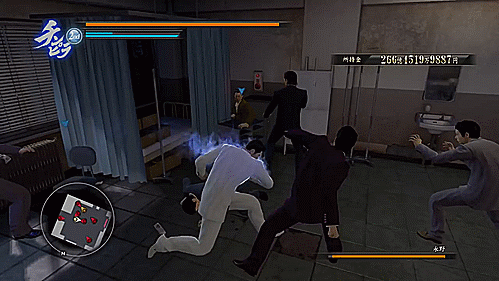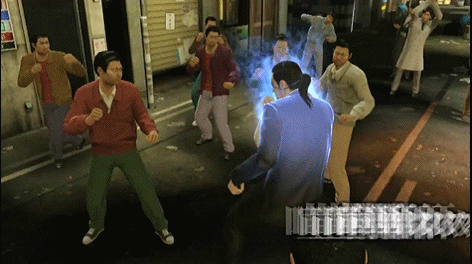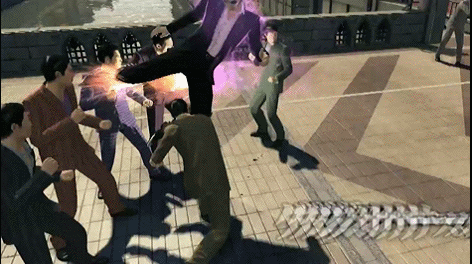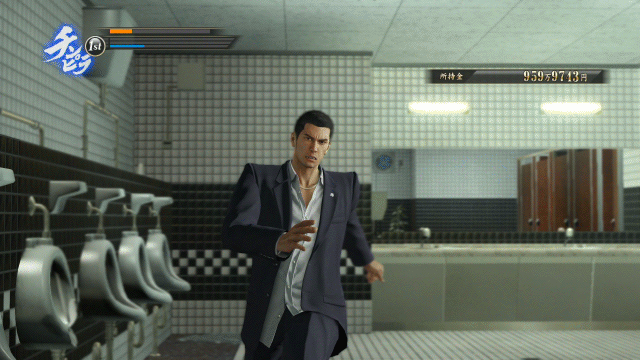How is a title supposed to sell gangbusters if no one releases key titles outside of Q4?
But it does happen from time to time. I don't watch sales like I used to, but occasionally delayed games release in Q1 to great success. Wind Waker was one of those. So was RE4. Dark Souls 2 was a spring release and that didn't hurt it. Watch Dogs too. Sony does a good job of releasing year round and does well with it.
Now flip that around: what games released outside of Q4 bombed but would've been hits if they'd just waited and released the same day as CoD?
It's basically just Microsoft
(and recently Activision) that rarely releases titles outside Q4.
Sony has done Uncharted 4 (May), Ratchet and Clank (April), Until Dawn (August), Bloodborne (March), The Order 1886 (February), and Infamous Second Son (March). Plus No Man's Sky (August) if you count that - it was certainly marketed like a major title anyway.
Whereas Microsoft has released Forza 5, Sunset Overdrive, Killer Instinct, Halo: MCC, Halo 5, Dead Rising 3, Ryse and Gears 4 in Q4. With Forza Horizon 3 missing Q4 by just 3 days, and Forza 6 by 15 days. They basically just have Titanfall and Quantum Break for major titles outside of the holiday window
since 2014 (to be fair, I probably missed a couple).
Even 3rd parties spread out their offerings more
(except Activision, but that's mostly because they've become a Call of Duty/Skylanders factory and those always release Q4).
EA releases Madden (August), Mirror's Edge (June), PvZ Garden Warfare 2 (February), and BF: Hardline (March).
Ubisoft has Far Cry: Primal (February), The Division (March), South Park (March) and Watch Dogs (May).
Warner Bros LEGO games come out all over the place, Mad Max was Sept 1st, Arkham Knight (June), Witcher 3 (May), Mortal Kombat X (April) and Dying Light (January).
That's a self-fulfilling prophecy. It's like saying "people eat the most food in December, so people gain the most weight in December". Not exactly a profound insight. If all the games are released in Q4, and all the marketing occurs in Q4, then no kidding, the sales will occur in Q4. Move those elsewhere, and the sales will follow. Obviously you have Christmas, but believe it or not, people don't just buy products released in Q4 at Christmas.
That's not how that works. Sales didn't just appear during Q4 magically. Games didn't start targeting holiday season because they randomly
chose to. People buy more shit in Q4, period. Not just games, but everything. Q4 is the biggest quarter for literally
every retailer in the country across
every different product type. There are companies that operate at a loss for 9 months of the year and manage to turn a profit
just because of the holiday rush. And that has nothing to do with games whatsoever. It's just economics.
You're contradicting yourself. Are games deliberately released in Q4, or do they ship when completed, which is, according to you, never when they were planned to be done? You're not going to try and convince us that the stacked Q4 every year just happens to be when over half the games that year coincidentally were all completed at once, are you?
It's not a contradiction. It's a difference between target and actual. Even if you don't target Q4, you might end up in it anyway. Even if you target Q4, you might end up in Q1 the following year too. Which is why you are seeing more frequent Jan/Feb/March releases than usual too. But that doesn't mean that happens to every title. Some target non-Q4 releases and hit them, others target Q4 and hit it. The point was that
some games end up in Q4 out of sheer unfortunate luck rather than
planning to drop in the same week as COD.
What's the difference? There's only so much room for consumer spend, and there's only so much room for consumer attention to marketing. If you release the same day/week/month as one or several games with bigger audiences and bigger marketing budgets, does it matter whether consumers chose their game because of limited budget or because they didn't notice your game? Either way, you'd have been better off staying clear of that timeframe.
The difference is that release date versus marketing blitz doesn't necessarily line up. Some games run marketing for several months. Some run for several weeks. A few only do a marketing push
immediately after launch. This can shift when your marketing (and thus sales) are most effective to several weeks before or after your actual date. This can mean that two games released on the same day can have staggered marketing pushes and effectively separate their
perceived launches by weeks. It also means that your competitor can run a huge marketing push during your launch to try to squeeze your sales even if they aren't releasing for several weeks - Blizzard has done this repeatedly to competing MMOs, for example. For AAA though, this is largely irrelevant because every game now has marketing budgets in the $100m range and can garner enough promotion even with competition.
Another thing you might not be considering is that most consumers have the budget to purchase multiple games in Q4 - moreso than any other quarter. Consumers expect to buy more stuff at the end of the year and budget accordingly. It's actually a much bigger issue if, say, COD, BF, Titanfall, and Gears 4 all released in May for example. No one is prepared to purchase 4 titles in May. But they might be considering, even expecting it during Black Friday or Christmas.
I could add another reason this happens - the corporate world of AAA gaming needs to maximize their earnings at the very end of the year for shareholders. This largely depends on how they structure their fiscal year, but a lot of publishers want to have strong Q4 finishes to their earnings reports. A solid Q4 can basically wipe the slate clean if the company has struggled in Q1-Q3. A weak Q4 is fresh in everyone's mind when the stockholders meetings and board elections come around - and no CEO or CFO wants to see that.











